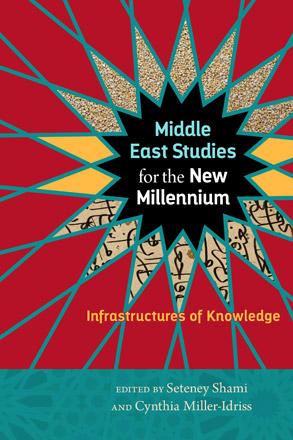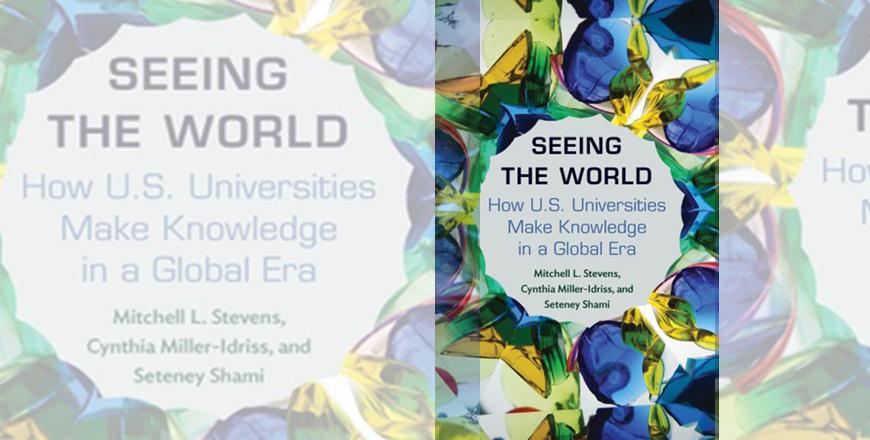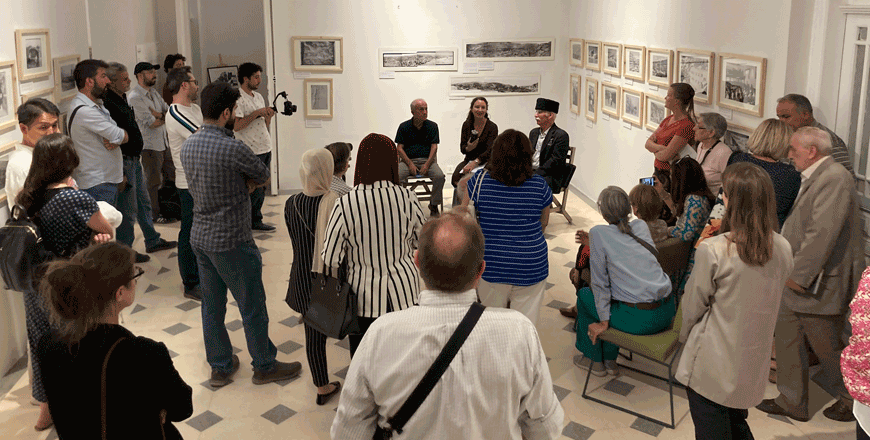You are here
An embattled paradigm
By Sally Bland - Jun 04,2017 - Last updated at Jun 04,2017

Middle East Studies for the New Millennium: Infrastructures of Knowledge
Edited by Seteney Shami and Cynthia Miller-Idriss
New York: The Social Science Research Council and NYU Press, 2016
Pp. 488
The result of a ten-year research project, this book explores the relationship between knowledge and power as it plays out in the field of Middle East Studies (MES) in the US. This might sound theoretical, but the book is very concrete; 17 scholars address a range of issues that often overstep the bounds of academia.
Due to the US’s fraught relations with the Middle East, and the region’s geopolitical importance, US foreign and domestic policies impact directly on MES, via legislation and funding, as do prevailing ideologies and the ways in which research, teaching and learning are organized at universities.
Obviously, 9/11 was a turning point for MES (as for so much else), but it had a dual effect. While increasing interest in the area and government funding for relevant language programs, it also shone a critical spotlight on MES scholars who were taken to task by some for not having anticipated the escalation of militant Islamism. Attacks on academic freedom rose, as did demands that MES better serve “national security”.
Outlining the crises affecting MES, the editors contend that global events of the 21st century overturned previous thinking: “As the world sees increased militarism, deepened suspicions, swelled refugee flows, and renewed obstacles to the circulation of ideas and people, the happy assumptions of global flows and creative hybridities seem a thing of the past. These trends have implications for the field of MES and the ways in which knowledge about the region is produced.” (p. 2)
More than ever, MES became an embattled paradigm.
Successive chapters trace how MES developed past Oriental departments into area studies, how it is related to other disciplines, particularly the social sciences and humanities, how it has been affected by the restructuring of universities, and how it compares to other area studies. There is critical inquiry into the meaning of scientific
objectivity, and how US intervention in the areas under study impinges on how they are viewed. Although Orientalism was seriously challenged and often discarded, other intellectual trends, such as American exceptionalism, Cold War thinking, modernisation theory, liberal values and neoliberalism, have moulded MES into boxes not necessarily conducive to actually discovering the diverse reality of the region.
The first section of the book examines the role of various disciplines in furthering or diverting MES. Taking examples from political science, sociology and economy, scholars note that the adoption of quantitative methodology has obscured the real issues and often made the social sciences complicit in US imperial strategy, especially after the revival of cultural essentialism which paints the region as backward and thus in need of intervention. “In the context of political science’s commitments to scientific objectivity and to the production, or at least protection, of the US liberal order, studying the Middle East has always been a vexed enterprise.” (p. 31)
“For area studies, the price of being admitted to mainstream sociology… was to concede that in-depth knowledge of world regions was of secondary importance to methodological rigor.” (p. 96)
As a counterweight, there is a survey of the history of sociology in the Middle East itself.
Many of the contributors argue for breaking out of narrow disciplinary confines, noting that “our collective interdisciplinary research on the ‘Middle East’ has helped complicate assumed universal phenomena, thus enabling a richer understanding of how spaces of all shapes and scales are situated products of particular connections between people, things, and ideas”. (p. 170)
The second section of the book covers how MES evolved and has been structured at various universities, and includes a very interesting survey of PhD dissertations on the Middle East in the years 2000-2010, to show what is actually being studied.
The final section is the most politically charged, as the contributors evaluate the consequences of the 21st century’s shift towards a global rather than regional focus, and the new priority assigned to studying neoliberal economies, political Islam and terrorism. While public knowledge and debate were skewed by government deception and its echoes in the media in the aftermath of 9/11, affecting the public’s view of the Iraq War, Palestine, the wars on Lebanon, etc., on the positive side, more scholars have engaged in public debates on academic freedom and the purpose of MES. The book wraps up with a challenge to MES scholars to focus their work on really meaningful topics, despite prevailing trends in other directions: “In part because of the remarkably constricted horizons of American political and social life and because of the imperial past of the region, we must confront the technical limits of our disciplines and the urgent need to address morally significant and momentous issues.” (p. 439)
Related Articles
Seeing the World: How US Universities Make Knowledge in a Global EraMitchell L.
AMMAN — The French research centre in Amman (Ifpo) aims to disseminate knowledge about the Middle East to develop a culture of d
Social Sciences in the Arab World: Forms of PresenceMohammed BamyehBeirut: The Arab Council for the Social Sciences, 2015Pp.


















